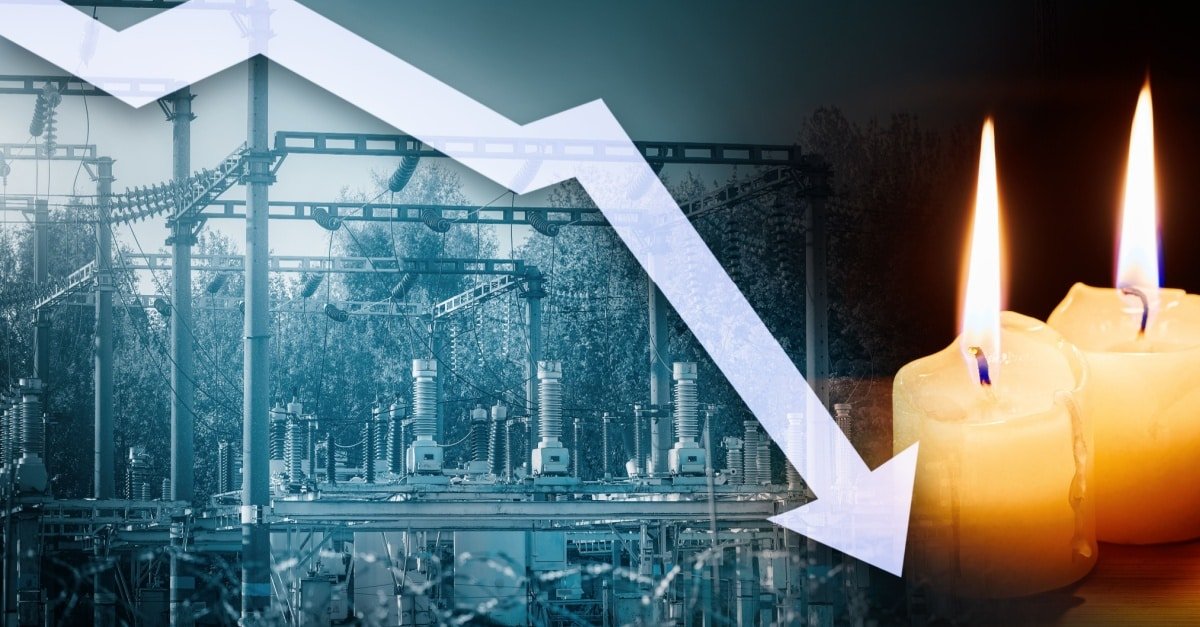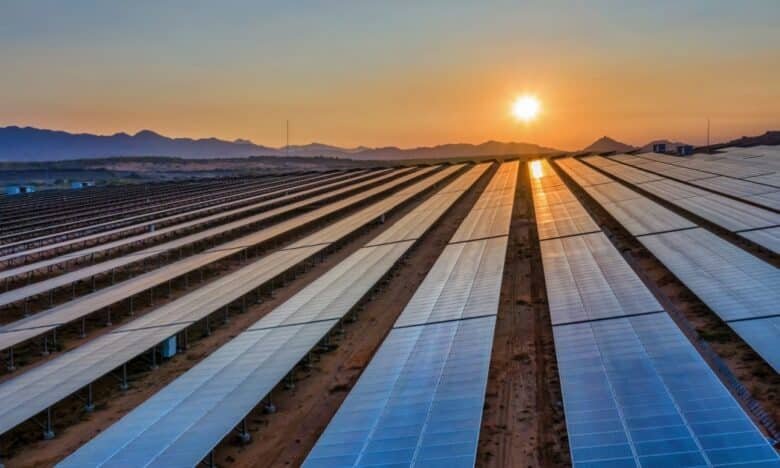
What Siquijor Reveals About EC Challenges
- July 21, 2025
In mid-May this year, the province of Siquijor began facing escalating electrical disruptions. All six generation units at the Siquijor Island Power Corporation (SIPCOR), the island’s only power supplier, began failing. The result: daily rotating brownouts lasting between two and five hours due to a 2,250-kilowatt (kW) shortfall against peak demand/
On June 3, the Sangguniang Panlalawigan unanimously declared a state of calamity to mobilize funds and respond swiftly. This declaration came in response to “widespread and prolonged power outages” that severely disrupted businesses. Provincial board members highlighted canceled bookings, refund demands, and a notable economic slump in tourist-dependent enterprises.
Presidential directive
President Ferdinand Marcos Jr. visited Siquijor’s SIPCOR plant and demanded immediate corrective measures. During his June 11 visit, he gave the National Electrification Administration (NEA) a firm deadline of June 15 to restore stable electricity.
Under Presidential directive, NEA oversaw expedited repairs to SIPCOR’s units and sourced an emergency genset from the Palawan Electric Cooperative (Paleco) on June 14, bringing power back to the island.
However, the crisis was far from over. President Marcos gave the government a six-month window to carry out short-term interventions, such as using generator sets as a stopgap while addressing the power supply collapse.
(Also read: DOE to Finalize Grid Plan by September for Renewables Push)
Investigation findings
In response to Siquijor’s ongoing power issues, the Energy Regulatory Commission (ERC) launched a formal investigation into Prosielco and SIPCOR. At the July 3 hearing, the Commission found SIPCOR operating diesel plants without valid Certificates of Compliance or Provisional Authority to Operate—clear violations of the Electric Power Industry Reform Act (EPIRA) and its implementing guidelines.
Additionally, the ERC flagged the documentation submitted during the hearing as incomplete, prompting a directive for all involved parties to provide a full report. This includes a detailed account of undelivered energy from 2015 to 2024 under every power supply agreement between Prosielco and SIPCOR.
However, Prosielco also had glaring shortcomings. The ERC pointed to faulty sectionalizing equipment and delays in relocating infrastructure on the distribution side.
(Also read: Unsteady Ground: The Cracks in GEA-5’s Offshore Wind Strategy)
How electric cooperatives (ECs) are holding back communities
During his visit to Siquijor, President Marcos remarked, “The victims are the ordinary people of Siquijor… They are losing that opportunity to develop because of power shortages.”
Across the Philippines, concerns are mounting over the performance of some electric cooperatives (ECs), with issues such as outdated infrastructure, delayed repairs, and inconsistent service affecting communities. These inefficiencies have disrupted local economies, strained public services, and prompted growing calls for reforms.
Here are some ECs that have drawn attention due to reported operational shortcomings:
-
Batangas Electric Cooperative (Batelec) I & II
Meralco is pursuing a joint venture with Batangas II Electric Cooperative (BATELEC II) to address persistent power outages in the province. The proposal enjoys strong support from local governments and residents. A Capstone‑Intel survey revealed that 93% of BATELEC II customers experience frequent outages—some up to 10 times a month—prompting calls for Meralco’s entry as a solution.
Despite this support, Meralco faces regulatory hurdles before finalizing the partnership. EVP Ronnie Aperocho stated that the company is proceeding cautiously, in line with NEA guidelines.
Local officials and consumer groups continue to back the reform, urging BATELEC I and II to collaborate with Meralco. Advocates cite the need for better service, transparency, and job protection for current workers.
-
Oriental Mindoro Electric Cooperative (Ormeco)
Tourism in Oriental Mindoro is rebounding strongly, with over ₱360 million in receipts recorded in March 2024, according to the Provincial Tourism Office. There were 117,684 tourist arrivals in Q1 2024—a 13% increase from the same period last year.
However, business owners in Puerto Galera are sounding the alarm over worsening power issues, as revealed in focus group discussions by the energy advocacy group ILAW. Ormeco, the local EC, received a poor 4.5 out of 10 rating from hospitality and food industry stakeholders, who cited frequent unannounced outages, aging infrastructure, and recurring disruptions as major concerns.
One businessman noted, “As a desperate move, some businesses are forced to lower prices or offer compensatory services, further cutting into their profits.” Several establishments have reportedly shut down due to unreliable electricity, displacing workers and straining the tourism industry.
-
Albay Electric Cooperative (Aleco)
Albay, known for the iconic Mayon Volcano with its near-perfect cone and scenic hiking trails, continues to draw tourists. Behind the beauty, residents have grown increasingly frustrated with persistent power issues tied to Aleco, the province’s EC.
In June 2025, Aleco admitted to system losses of 23.45%, largely due to electricity theft and aging infrastructure, costing the utility around ₱80 million per month and placing it among the most “ailing cooperatives” in the region.
Frequent and prolonged outages have compounded public frustration. In May 2024, ALECO scheduled a nearly 12-hour power interruption to repair sensitive reclosers that caused repeated tripping, though the blackout extended due to on-site accidents. By March 2025, entire districts in Albay endured 48-hour blackouts for emergency equipment repairs, highlighting the urgent need for systemic upgrades.
One resident remarked online in Bicolano, “Dai na lamang mabago ang kuryente sato, no. WFH ako—halos nakaleave ako kapag may 8–12 hrs to na warang yente.” (The power situation here just never seems to improve. I work from home, but I end up having to go on leave whenever there are 8-12 hour power outages.)
-
Iloilo Electric Cooperative (ILECO) I & II
Iloilo’s two ECs, ILECO I and ILECO II, have faced persistent inefficiencies, including unreliable service, frequent power outages, and “onerous” and “take‑or‑pay” power purchase agreements (PPAs) that strained finances and hindered reinvestment in infrastructure. Customers also regularly reported unscheduled brownouts.
Seeking to address these systemic issues, MORE Electric and Power Corporation (MORE Power) received legal approval under Republic Act 11918 to expand into territories previously served by ILECO I and II.
Despite objections from the cooperatives, the Supreme Court, in late July 2024, decisively ruled that exclusive utility franchises are constitutionally unsupported, affirming that Congress may expand MORE Power’s coverage to promote competition and consumer welfare.
-
Northern Davao Electric Cooperative (Nordeco)
The cooperative failed to deliver a submarine cable by its self-imposed June 30, 2024, deadline to stabilize power in Samal Island. This followed a public commitment to improve the island’s power situation within a month, made during a Senate hearing on May 23.
Samal’s Mayor Al David Uy reported that unreliable power cost local government units ₱120 to 150 million in 2024. The island’s tourism sector lost ₱50 million, businesses ₱30 million, household appliances ₱50 million, public services ₱10 million, and agriculture and fisheries another ₱20 million.
Meanwhile, Republic Act 12144, which authorizes Davao Light and Power Co. to take over Nordeco’s franchise areas, including Samal, lapsed into law on April 6, 2024. The takeover is set to take effect in 2025 and is strongly supported by consumer groups, citing widespread dissatisfaction with Nordeco. The cooperative, however, is holding on, having challenged the law before the Supreme Court and secured a temporary restraining order while the case remains unresolved.
ECs under scrutiny
Government officials and energy experts have long raised alarms over the inefficiencies plaguing many ECs across the country.
At a 2024 Senate hearing on the franchise of Negros Electric Power Corp., Senator Grace Poe warned that the utilities sector risks falling behind if it fails to keep pace with growth. She questioned whether ECs are equipped to meet the demands of expanding commercial zones, saying, “Do you have the capitalization needed… if call centers relocate or new hotels open? Can you electrify all of them?” She added that “cooperatives may not have the technical knowledge or the corporate competence to be able to supply the power needed in those areas.”
Senator Sherwin Gatchalian echoed similar concerns, particularly around corruption. He stressed that “issues of corruption hounding certain ECs cause consumers to lose their confidence in the ECs concerned,” adding that this distrust ultimately harms operations and consumer welfare. Gatchalian also revealed that he has received repeated complaints about EC executives allegedly misusing funds for personal gain, compromising their cooperatives’ finances and operations, and ultimately leading to poor service delivery.
Columnist and academic Alex Magno cited a study using data development analysis, which showed that many of the country’s 120 ECs are operating inefficiently. The findings suggest that most could reduce their input costs by up to 18% and still deliver the same output, pointing to the potential for lower electricity rates nationwide. He noted that “franchises for these local monopolies are precious grants often awarded as part of the political spoils instead of based on economic efficiency.”
With around 15 million customers depending on them, ECs are critical to driving development beyond Metro Manila. Reliable service is essential for uplifting lives, reducing poverty, and enabling economic activity in underserved areas. If they cannot deliver on this mandate, then it’s time to reform—or be replaced.
Sources:
https://cebudailynews.inquirer.net/640812/siquijor-declares-state-of-calamity-due-to-power-crisis
https://pia.gov.ph/siquijor-under-state-of-calamity-due-to-power-crisis/
https://www.pna.gov.ph/articles/1252196
https://tribune.net.ph/2025/06/15/siquijor-power-woes-resolved-palace
https://powerphilippines.com/sipcor-faces-erc-action-for-siquijor-blackouts
https://www.philstar.com/opinion/2024/07/13/2369762/failed
https://www.sunstar.com.ph/davao/nordeco-challenges-davao-light-franchise-expansion-at-supreme-court
https://www.philstar.com/opinion/2024/07/13/2369762/failed
https://www.pna.gov.ph/articles/1223344
https://www.pna.gov.ph/articles/1246376
https://www.reddit.com/r/Bicol/comments/1fl47y1/wfh_pag_brownout/
https://dailyguardian.com.ph/sc-calls-out-ilecos-onerous-contracts/
https://sc.judiciary.gov.ph/sc-exclusive-franchises-are-prohibited-by-the-constitution
https://www.philstar.com/opinion/2024/01/09/2324388/consolidate
https://mb.com.ph/2024/2/13/cleansing-and-review-of-electric-coops-categorization-pushed
https://www.bworldonline.com/opinion/2024/10/15/627662/nea-batelec-nordeco-and-other-electric-cooperatives/



